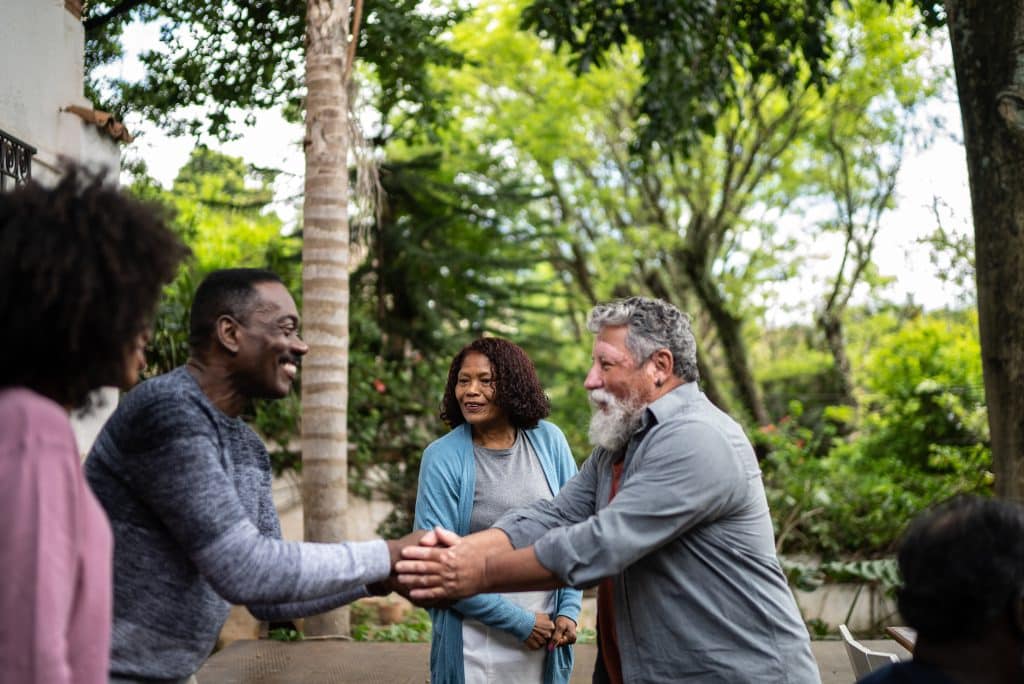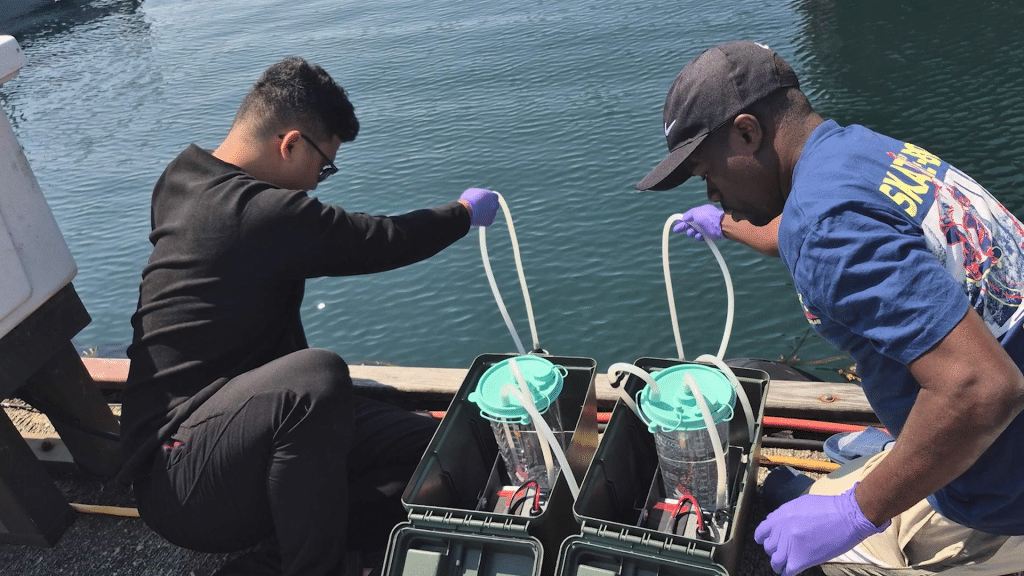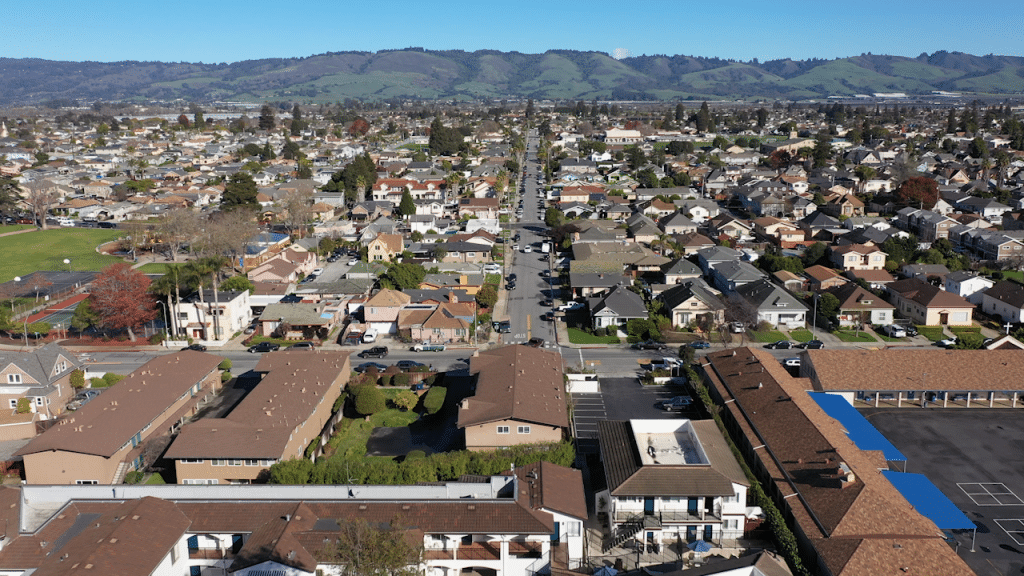Latasha Crockrell had been through pregnancy before.
A mom of three, now pregnant with her fourth baby, she thought she knew what to expect. But this time, she had decided to work with a doula.
“She kept calling me, checking on me,” Crockrell said of her doula, Kashuna Watts, “asking about me, how I’m doing.” They built a relationship, and over the next several months, through the ups and downs of her pregnancy, Crockrell turned to Watts for guidance, advice, and expertise. As a doula, Watts is a trained professional who provides physical and emotional support and information to pregnant people women, during, and after birth.
Crockrell was diagnosed with preeclampsia, a complication in pregnancy with potentially life-threatening consequences for mom and baby. She was in and out of the hospital. Every step of the way, Watts was there, helping her navigate complex challenges. At 37 weeks, she gave birth to a healthy baby boy, Robert, and returned home.
About a week after giving birth to her son, Crockrell began having persistent headaches. Watts urged her to go to the emergency room, but Crockrell brushed it off. She said she would see a doctor soon. The headaches got worse and worse. Watts knew this was serious. She knew Crockrell’s history. And she knew that her role as a doula was to insist.
“She was like, ‘you need to go now,’” Crockrell recalled. She took her doula’s advice and went to Magnolia Medical Foundation, a Packard Foundation grantee partner, based in Jackson, Mississippi. The staff, recognizing the gravity of the situation, called 911. Crockrell was treated for afterbirth preeclampsia, a potentially fatal condition. She recovered, but she considers herself lucky.
Crockrell first learned of Magnolia Medical from Watts, who had recommended the organization to help Crockrell through a difficult postpartum period. In addition to preventive medical care, Magnolia Medical Foundation provides essential resources like food, diapers, and services for mental health care, chronic disease management, child care referrals, workforce support, and much more.
At Magnolia Medical Foundation, Crockrell felt her circle of support deepen and become stronger. She could go there for everyday items she needed, and the staff would watch her kids when she came for appointments.
Today, a healthy mom to four healthy children, Crockrell credits her support system with helping to save her life. She still goes to Magnolia Medical Foundation for care. And Crockrell has since become a doula herself, realizing that her story and experience could help other moms and pregnant women. She says she loves educating other moms and helping them find resources they may not have known about.
Ensuring a strong, healthy start
The earliest years of a child’s life set the foundation for a lifetime of health and well-being. Crockrell’s experience illustrates the daunting challenges so many pregnant women, moms, and families in the U.S. face in giving their children a healthy start – but her story also shows what’s possible when they have the support they need to thrive.
A healthy start in life starts with a healthy pregnancy and a healthy birth. But with an ongoing crisis in maternal and infant health – rates of maternal and infant mortality are consistently worse here in the U.S. compared with other wealthy nations – a healthy start can be frustratingly and tragically out of reach. This is especially true for Black, Indigenous, and Latino families, who bear an unequal impact from this crisis.
And beyond the serious health risks, when a woman becomes pregnant, there’s a lot to manage to ensure her baby will get a strong start: finding a healthcare provider, arranging prenatal care, eating nutritious food, coming up with a birth plan, and lining up a pediatrician. Once their baby is born, they’ll have to find breastfeeding support, reliable and trustworthy child care, look after their own physical and mental health, and so much more.
While there are government programs and social services designed to support families, expectant parents, and babies – they can be disconnected, confusing, and difficult to navigate, placing the burden on families to create a patchwork of support for themselves and their children.
Between Watts and Magnolia Medical Foundation, Crockrell found a support system that she could rely on for help meeting these needs. She didn’t have to think about where to go or what she was eligible for – she could make a single phone call or walk through a single door and find people she trusted who were ready to help her access the resources, care, and support she needed.
Building a connected system of care
There are doulas like Kashuna Watts and organizations like Magnolia Medical Foundation in many communities across the U.S., working to ensure that welcoming a baby is a joyful experience and that families have what they need to build the foundation for a lifetime of health and well-being for their children. They show us that it’s possible to surround moms, parents, and families with care and support.
But to ensure all families can give their children a healthy start requires a range of resources, supports, and services broader than any single organization can provide. Families engage the health care system for pre- and postnatal care, labor and delivery services, and pediatric care. Parents need affordable, safe child care that allows them to continue working to make ends meet or pursue their education – all while ensuring continued healthy learning and development for their children. And families benefit from federal, state, and local financial programs that support their economic security, health, and well-being such as food assistance, child care subsidies, health insurance, paid family leave, and tax benefits.
Which of these supports a given family needs will depend on their individual circumstances. But making meaningful progress in maternal and child health outcomes in the U.S. — including ending the current crisis, reducing racial disparities, and ensuring every child gets a healthy start – requires a collective effort to make these systems work better for families.
This is why the Packard Foundation is working to ensure the health care, financial, and child care systems that support moms, families, and children are stronger, more connected, and better designed to meet the needs of all families.
To do this, we make three types of connected investments:
- We support community-based service providers and advocates – like Magnolia Medical Foundation – who are intimately familiar with what moms, expectant parents, babies, and families need to thrive as they find innovative ways to meet these needs.
- We invest in efforts to engage the people who work within the health care, child care, and financial support systems to strengthen and connect them from within so families can easily get the quality care and support they need.
- We support advocates working at the state and federal level to champion policies designed to better support families, expectant parents, and young children.
A truly connected system of care would mean that more moms and families could have experiences similar to Latasha Crockrell’s. They would know what resources, services, and benefits they were eligible for and how to access them. They would feel empowered and supported. And they would be able to give their children a strong, healthy start.




